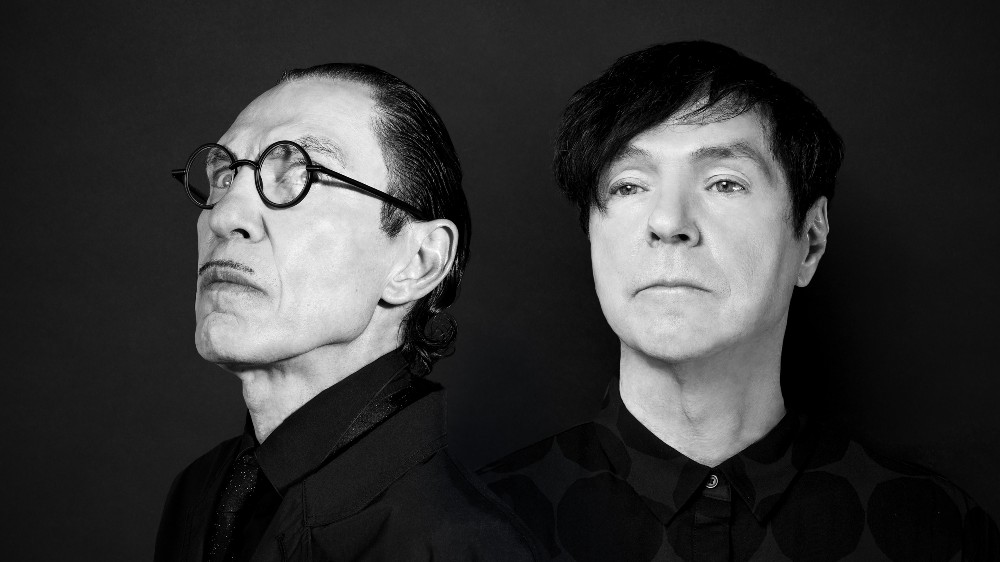
Edgar Wright’s documentary, The Sparks Brothers, may be the most comprehensive look at a band that’s been created, but when you have a band like Sparks, who have been making records for almost 50 years, delving into all sorts of musical genres and even creating a few in the process, you damn well better be comprehensive.
Besides spending many hours talking to Ron and Russell Mael, the brother in the title and the only constant as the band’s creative force, Wright also found many of their collaborators from the past few decades, and then brought in many of his own musician friends and other fans to talk about the influence Sparks had on them. It’s a veritable cornucopia of talent that never loses sight of covering every aspect of the Maels’ incredibly long history of making music that’s created multiple levels of influence.
Along for the ride to shoot Wright’s interviews and a couple concerts was Cinematographer Jake Polonsky BSC, who was only shooting his second documentary with The Sparks Brothers. His first documentary was Asif Kapadia’s highly-acclaimed 2010 BAFTA-winning doc, Senna. Other than that, Polonsky has also been the DoP on three seasons of Showtime’s Billions and is currently filming the second season of Hulu’s The Great.
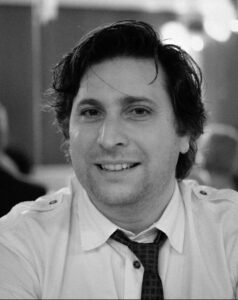
Below the Line spoke with Polonsky over Zoom recently, mainly venturing into the process of filming so many interviews, all in black and white.
Below the Line: How did you first meet Edgar Wright? Had you worked with him before or knew him before?
Jake Polonsky: Yes, I mean, I’ve known Edgar for years really, from before he made his first movie. He directed a TV show called Spaced and was starting to do some work in music videos and commercials, this must have been almost 20 year ago, and we met and sort of worked together back then. So it was just a funny thing. We’d known each other for years, and stayed in touch, and I’ve worked on The World’s End with him, shooting some stuff. One day, in 2018, I saw he had posted a picture of himself with Ron and Russell [Mael], and immediately sent him a message to say, “Hey, you actually met them,” and he said, “Yeah, not only did I meet them but they’ve asked me to make a documentary about them. Do you want to shoot it?” and I said, “Yeah, sounds good.”
BTL: So you knew who Sparks were when you saw a picture with them?
Polonsky: Although I didn’t really know much about them when I was younger, I’d seen them play at a festival, it must have been 2006, and it had just been a real kind of revelation. There were two headliners, Sparks and Lily Allen, and we knew we didn’t want to see Lily Allen. They came out and played the whole of Hello Young Lovers, which must have been the album they had just released. And it was very funny to just watch the entire audience go from confused, bemused and then go, “Hey, this is actually pretty good. ” And then they went off for a little break, came back on and played what was essentially a greatest hits set, and that was just amazing. We kind of came away from that concert just immediately converted.
BTL: It’s funny that you were surprised that Edgar knew them, because Edgar literally knows everyone, as you can tell from watching the movie and seeing who shows up and who he managed to track down.
Polonsky: Edgar is a huge music fan, and I think for him this was a real passion project, in terms of, really trying to get the recognition for them that has sometimes eluded them.
BTL: I spoke to Editor Paul Trewartha earlier, and he mentioned Edgar came to him with 18 hours of interviews just with the Mael Brothers. At that time, had you and Edgar just been flying around the world interviewing all these people?
Polonsky: It had to be done in quite concentrated little sections, because of having chosen to do it with these Red Monochrome cameras, and also because of budget, we really had to line up a whole bunch of interviews in a particular place over a couple of days, and try and bunch them together. We shot a few sessions in London, one in New York and a couple in Los Angeles, and we managed to kind of get everybody pretty much that we were after to come to one of those places. I think Edgar’s big thing was he wanted it to all feel like one… he wanted all the interviews to look exactly the same, but also to have a particular look that he was after. So it was really important to set something up that we could recreate and make that signature thing of what it was going to be.
BTL: I was curious whether you used the Red camera to shoot the black and white interviews rather than shooting in color and then changing it in post, but I’ve been hearing about more people using the Red Monochrome.
Polonsky: Edgar had come with the original idea that he wanted to kind of get the feel of the cover photography from the Sparks album, Big Beat, which was some portraits of the band that were taken by Richard Avedon in 1976. I knew those had been done, obviously, using large format black and white traditional film photography. I was trying to figure out if there was some way to find something similar. I was doing a bit of research into the Red Monochrome cameras, and they’d made a few custom ones over the years, so I reached out to David Webb at Red in London, and they were very interested in showing a Red Monstro camera, so we shot some tests with it, and we liked how it looked and decided that was going to be the way forward.
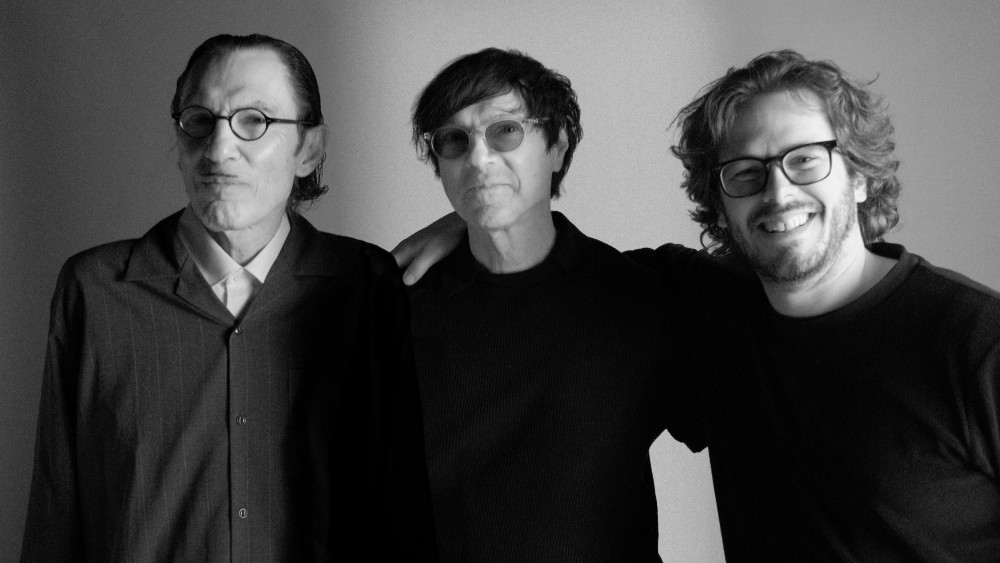
BTL: Were the interviews with the Maels the first part of the whole process?
Polonsky: No, I know we talked to them early, but we definitely talked to them more than once, and there were a lot of other people spread around. It wasn’t the first thing we did. The first thing we did was we shot them playing live in London, and that was in May 2018, but we didn’t start the interviews until late.
BTL: I did want to ask about filming the concerts, so we can jump back into the interviews afterwards. Did you shoot more than one concert or was there one big concert and the rest was archival stuff they found?
Polonsky: There was a mixture. We shot the show in London at the Forum as a multi-camera concert film, which I think is an extra that I think will be on the DVD and Blu-ray, and some of which is in the film. But we also shot, more informally, some shows in L.A. Edgar went to Japan and Mexico — I didn’t go there — and they shot some of the more informal bits of coverage of those festivals they were playing there, actually quite a few shows.
BTL: Gotcha. I wasn’t sure how much of that concert footage was shot especially for the film. I did know about the London shoot, because Edgar mentioned it or posted on Twitter about it.
Polonsky: Yeah, that was kind of the main performance thing really.
BTL: When you first filmed him interviewing the Maels, how much time did you spend with them that first time? Paul mentioned that Edgar went through each album of theirs one-by-one, so at what point in the interview process, do you start doing that?
Polonsky: Like I said, we did have more than one sit down with them, because it was just far too much to go through in one day. If you imagine even sitting down, even with breaks, for three hours to talk with an artist about their careers, it’s pretty grueling, and we did have so much stuff to cover, that it was lucky that they would go for that.
BTL: Another thing I wanted to ask about the camera, were you able to just rent them when you went to different places like Japan, or did you have to lug it from place to place?
Polonsky: No, actually, we only used them in America and in the UK, and we were very lucky to have the support of Red, who were loaning us the cameras for the project. So we were very fortunate that Jarred Land and Naida Albright at Red were fully behind the project and really wanted to support it. Through them and through Panavision, who were also helping us, we were able to put together the package that meant that we could keep this continuity of look through all the interviews which we wanted.
BTL: The interviews are sort of split into three sections — you have Sparks themselves, you have their collaborators on the records and live shows, and then the fans, which I guess includes Edgar. Was he having to deal with booking them and scheduling, because I have to assume in London and L.A. there were so many people showing up there they were just lining up one after the other.
Polonsky: We made a couple of sessions, and they were both a couple of days, I remember, but there were a ton of people to get through. It was also just about locating people that had… we were super lucky to find people like the women who got up on stage in Fairfield Halls in Croydon, and then hugged Ron. It was amazing to actually see her watching herself as a 15-year-old talking about that experience, from the perspective of now. It was very touching just how the band has touched these people, and they’re still passionate about them.
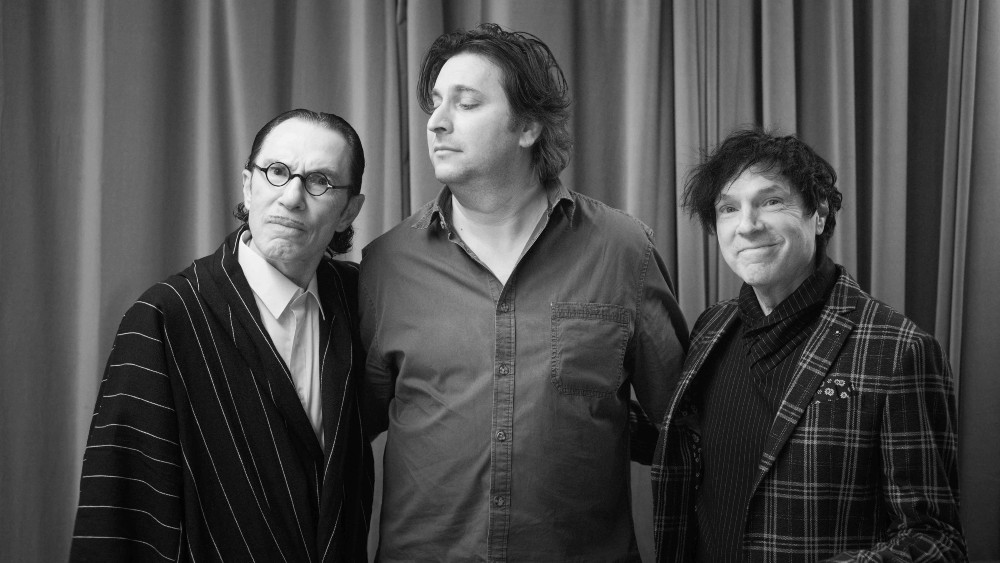
BTL: Were a lot of people hearing about this doc as you were filming interviews who wanted to get involved?
Polonsky: I think through Edgar’s network, he was constantly reaching out to people he wanted to have involved. Obviously, once we had some big-name people like Duran Duran and Flea from the Red Hot Chili Peppers, people could see, “Oh, actually, this is…. ” There were very few people who said, “No.” It was more that they just couldn’t necessarily accommodate coming to us. There was only one person who we went to interview just because it was the only way we could speak to him, which was Giorgio Moroder, and that was because he was passing through London on a particular day, and that was just how it was.
BTL: There’s so many people in this movie where you want to see the whole interview, which is obviously impossible. I remember Paul mentioned that there was a lot of stuff he loved that he had to cut out for time.
Polonsky: Yeah, I have to think originally there was a very long version of this film, but I think it’s a difficult balancing act. You’re treading a fine line, because you want to have a film that can introduce somebody to Sparks and who they are and what they’ve done. But also you want to appeal to people who know who they are and love them, but they still don’t need so much background information.
BTL: Obviously, you’re a professional, but was there anyone you shot that you couldn’t help but geek out over meeting them?
Polonsky: I mean, everybody was very generous and happy to be there. Nobody was particularly intimidating, but it was amazing to meet John Taylor and Nick Rhodes, and like I said, Flea from the Red Hot Chili Peppers. These people have had these incredible careers. It’s always interesting to actually hear them talk about something that’s not their own music or their own band.
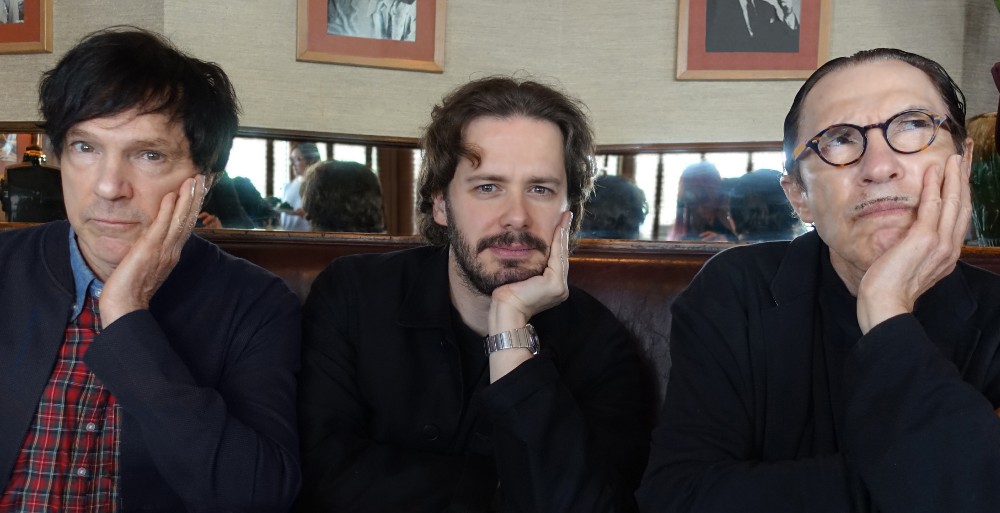
BTL: At what point did Edgar shoot his own testimonial about his Sparks experience and how long was that? What was that experience like that? Did you just roll camera, and he started talking about Sparks?
Polonsky: Edgar doesn’t find it hard to talk about Sparks. I’m pretty sure we shot that one about halfway through, but like I said, he’s always been extremely passionate about the band and about the project. He really was just very excited to get a chance to share that with other people, which is what the film’s all about.
BTL: I assume that you were finished shooting all the interviews and the movie was already in post when COVID hit last March?
Polonsky: Yes, we had completed the interviews at the end of 2019, and Edgar was already deep into the edit by the time COVID hit. When you have a documentary with a ton of archival material, it’s a very difficult job lining up all the material, trying to get the best quality versions of some very old footage. They just found some incredible performances from all over the world, which you see in the film and what adds so much to it.
BTL: Have you been working on anything else through the pandemic?
Polonsky: Yeah, well, I’ve just been working on the second series of The Great, which is Tony McNamara‘s show about Catherine the Great, Elle Fanning and Nick Hoult, so we’ve been filming that in London, mainly in the studio, and yes, it’s been a fully COVID compliant job, and it’s very difficult. It’s challenging.
BTL: How have things been going over there? I have a lot of friends in the UK, and I keep hearing different things about things going well, and then everything’s in lockdown again. It’s up, it’s down, movie theaters are open then closed.
Polonsky: Well, it was going good, and the numbers were going down, but unfortunately, this new Delta variant is pretty rapidly on the rise here now. They were planning to fully end the lockdown I think for a week or two, but I think that now has to be postponed. It’s kind of funny watching this movie, because it just takes you back to that period before when we didn’t have to think about this thing.
The Sparks Brothers hits theaters nationwide on Friday, June 18. Look for our interview with Editor Paul Trewartha sometime next week, as he talks about taking all of that footage shot by Wright and Polonsky and cutting it into the finished documentary.
All photographs courtesy Focus Features, except where noted.





